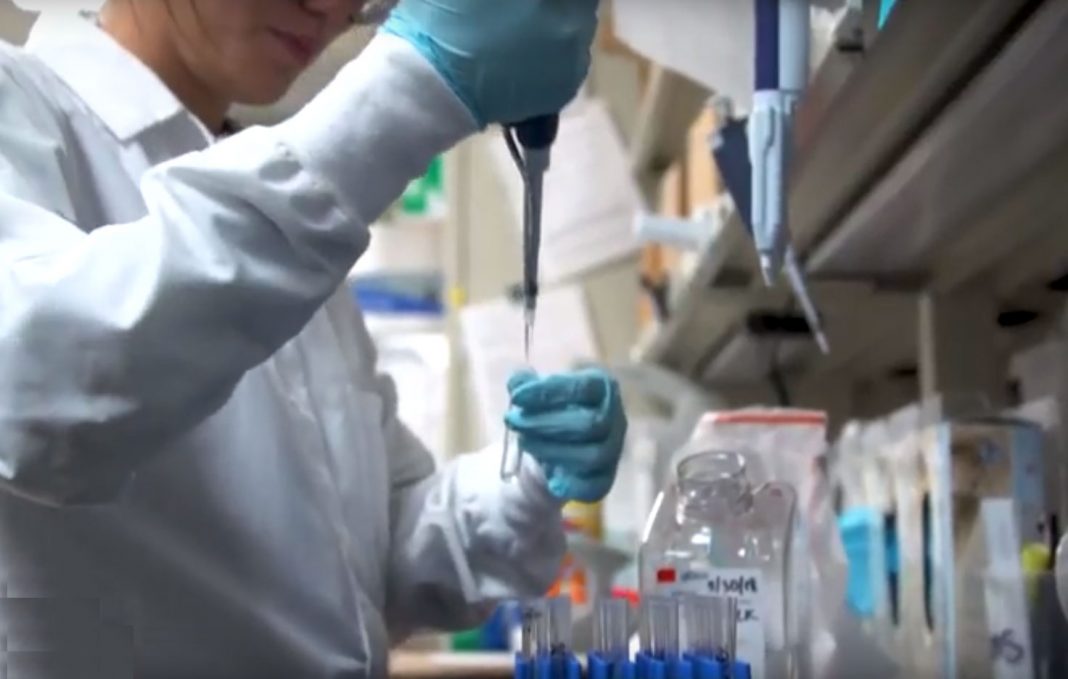Obesity suppresses immunity and is a major risk factor for certain cancers, but recent research indicates that, paradoxically, obesity also increases the effectiveness of some types of anticancer immunotherapy. A team headed by researchers at the University of California (UC), Davis has now uncovered new insights that may help to explain why. Their studies in animal models and in human patients suggest that obesity is associated with faster tumor growth, increased T cell dysfunction, and increased expression of the checkpoint protein PD-1. But, “remarkably,” the authors write in their published paper in Nature Medicine, this also renders tumors more responsive to treatment with PD-1 and PD-L1 inhibitor drugs.
“Overall these findings suggest that obesity may be a very important biomarker for response to checkpoint inhibitor immunotherapy,” commented Arta Monjazeb, Ph.D., associate professor in the UC Davis department of radiation oncology and co-author on the study. “We are not advocating for obesity as improving prognosis for cancer patients. But obesity appears to induce immune suppression and accelerated tumor growth through mechanisms that can be successfully reversed by checkpoint inhibitor immunotherapy.”
The team reported its findings in a paper titled, “Paradoxical effects of obesity on T cell function during tumor progression and PD-1 checkpoint blockade.”
Obesity is now reaching pandemic proportions and accounts for greater than 20% of annual healthcare expenditure in the U.S., the authors write. Obesity is associated with dysregulated immune responses, but how or whether this impacts on the course of cancer progression, or tumor immunotherapy, isn’t understood. Previous studies have shown that in obese animals and human patients the use of immune-stimulatory immunotherapies overstimulates the immune system and can cause serious side effects. Surprisingly, however, recent clinical data indicates that obesity is associated with improved responses and survival of cancer patients treated using drugs such as PD-1 and PD-L1 inhibitors, which block key immune checkpoints.
To investigate this finding further, the team first looked at the impact of obesity on T cell responses in multiple species, including mice, nonhuman primates, and humans. They found that obesity was associated with T cell exhaustion and dysfunction, and in mouse models promoted tumor growth. “In obese animals, cancer grows faster because there are more nutrients for tumors and because the immune system is more suppressed,” commented William Murphy, Ph.D., co-author of the study and vice chair of research in the UC Davis department of dermatology.
Obesity is associated with increased levels of leptin, and the team’s studies in mice and in human cells suggested that leptin may act as a driver of T cell dysfunction. Their results indicated that the weight-regulating hormone acts as a link between obesity, increased PD-1 expression, and T cell exhaustion. “These results indicate a role of leptin signaling in increasing PD-1 expression and promoting T cell exhaustion in tumor-bearing mice, which affects antitumor immunity,” they write.
Interestingly, there was a significant reduction in tumor burden and survival in multiple obese mouse models receiving anti-PD-1 therapy, compared with control animals treated using the same drugs. Data from human cancer patients also indicated that obesity was associated with increased tumor PD-1 expression and markers of T cell exhaustion. And a study involving 251 melanoma patients treated using checkpoint inhibitors also showed that obese patients had markedly better clinical outcomes compared with non-obese individuals. Obesity was associated with statistically significant improvements in progression-free survival and overall survival, without any evident increase in immune-related adverse effects. “Most importantly, we observed a striking improvement in the clinical outcomes of obese (BMI ≥ 30) versus nonobese (BMI < 30) patients in a cohort of 250 human patients treated with αPD-(L)1 checkpoint blockade for a variety of cancers,” the researchers write.
The authors claim their data indicate a paradoxical impact of obesity on cancer. “There is heightened immune dysfunction and tumor progression but also greater antitumor efficacy and survival after checkpoint blockade which directly targets some of the pathways activated in obesity,” they write. “…we demonstrate for the first time to our knowledge, across multiple species and tumor models, that obesity increases T cell aging resulting in higher PD-1 expression and dysfunction, which is driven, at least in part, by leptin signaling”
“It’s counter-intuitive because up to this point all of our studies showed that obesity resulted in more toxicities associated with immunotherapy treatments,” commented Dr. Murphy. “This is a game-changer because when we personalize medicine and look at body mass index, in some situations it can be bad, and in some situations, it can be helpful.”
The authors acknowledge that while their findings may help to develop better targeted immunotherapies, other factors, including gender, type of diet, and treatment timing, may be important. “It is unclear whether obesity may impact the survival of patients with cancer by other nonimmune factors as well,” the authors add. “… obesity should not necessarily be regarded as a positive prognostic factor in cancer but rather as a potential mediator of immune dysfunction and tumor progression that can be successfully reversed by PD-(L)1 checkpoint inhibition resulting in heightened efficacy.”
“So much data has been accumulated on understanding how factors in the tumor can affect response to immunotherapy,” Dr. Murphy noted. “We are now opening the door to understanding how intrinsic factors such as age, sex, diet, and obesity also can affect the immune system and response to immunotherapy.”

